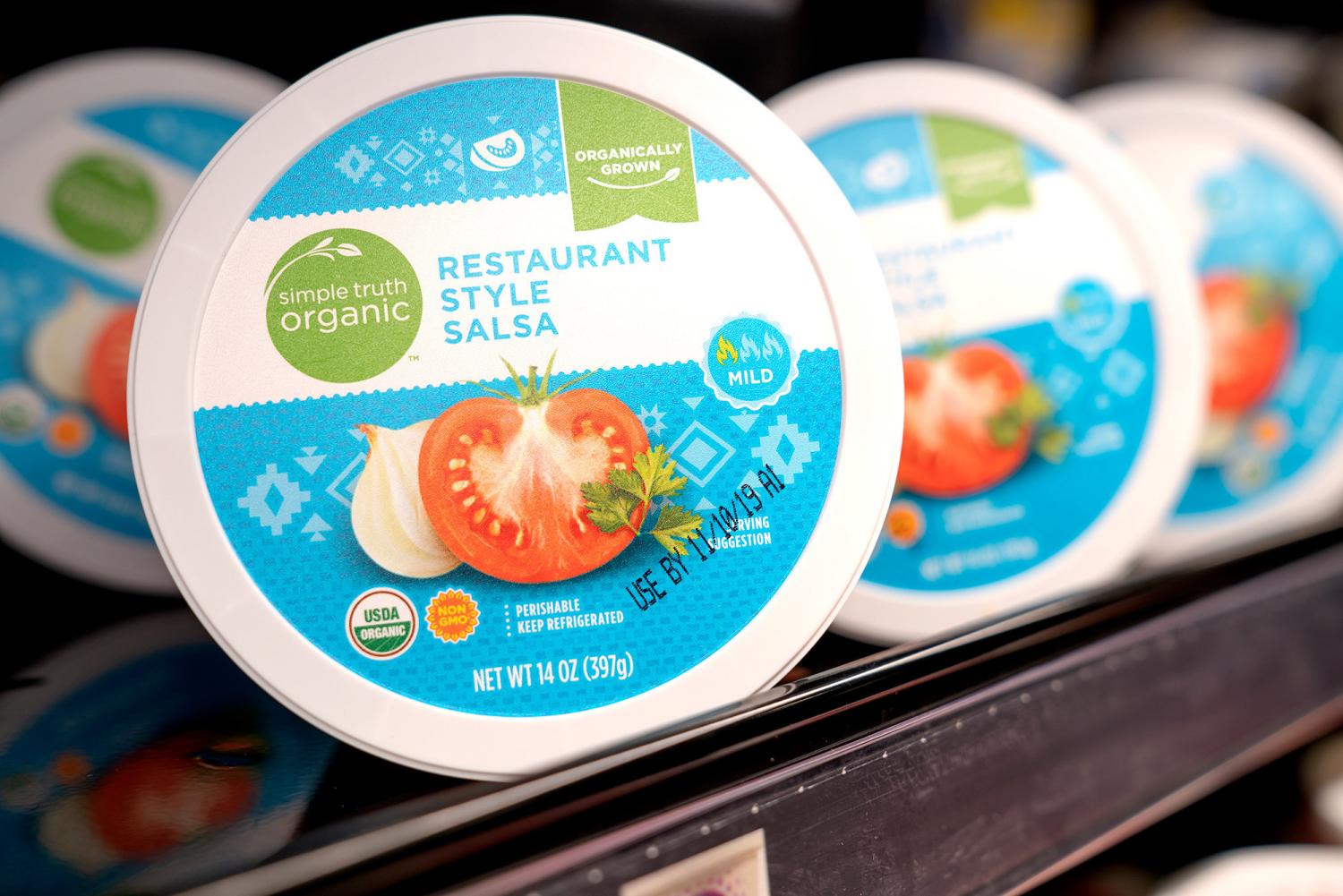
Earlier this month, the grocery store chain Kroger became the latest retailer to announce it would standardize food labels to provide consumers with simpler, easier-to-understand product quality and safety information in a move to reduce food waste.
Current food labels are confusing, contributing to food waste
With more than 10 different and confusing label options — sell by, enjoy by, fresh until, display until, best before — American consumers are often confused by if and when they should discard food, beverage and household products. In fact, a report by the Harvard Law School Food Policy Clinic and the Natural Resources Defense Council (NRDC) found more than 90 percent of Americans may toss food too early due to misinterpreting date labels.
Kroger’s new simplified labels will apply to multiple product categories, including dairy, deli, bakery and fresh and frozen grocery across its nearly 2,800 stores in 35 states. The labels are aligned with voluntary industry recommendations by the Grocery Manufacturers Association (GMA) and the Food Marketing Instiute (FMI). Based on input from more than 25 consumer products good companies, grocery retailers and other food experts, the guidelines advocate for just two simple labels (as an example shown above):
- "Use By" to represent food safety by indicating the deadline for when a product is no longer safe to eat.
- "Best if Used By" to represent food quality by setting the deadline for guaranteed freshness.
"By implementing a standard and simplified new date labeling approach, Kroger and our customers can play an instrumental role in preventing tons of food waste from arriving at landfills, resulting in a healthier, stronger planet and communities free of hunger and waste," said Jessica Adelman, Kroger's group vice president of corporate affairs and chief social impact officer, in the company’s announcement.
Reducing waste destined for landfills
As TriplePundit has previously reported, roughly a third of all food produced globally goes to waste. In the United States, this figure is closer to 40 percent— of which an estimated 20 percent is discarded because of consumer date labeling confusion.
We are talking a lot of food waste — 133 billion pounds to be exact — discarded annually, much ending up in landfills. The U.S. Environmental Protection Agency reports that more food reaches landfills than any other single material in the country. With approximately 20 percent of methane emissions in the U.S. coming from landfills, a reduction in food waste would have a positive impact on climate change, according to a report issued by GMA.
For food and grocery retailers, however, reducing food waste is more than about burnishing environmental credentials or improving their brands’ reputations. Companies can improve their profit margins as they become more efficient by tackling waste. According to a World Resources Institute study, for every $1 a company spends on waste diversion, it has the potential to gain a return on investment of up to $14 dollars. Better employee training, improved packaging and a leaner supply chain are just a few examples of how companies can benefit in the long run from focusing more on food waste.
GMA and FMI say 87 percent of products among its members have adopted the streamlined labels since their launch February 2017. They expect 98 percent adoption by the end of this year, and complete adoption by January 2020.
The Consumer Goods Forum, another global food industry network that boasts executives from about 400 retailers, manufacturers and food service companies, is also urging its members to simplify food date labels by 2020. The move will help the association reach its goal of slashing food waste among its membership 50 percent by 2025. Companies that are aligned include Bimbo, the largest baking company in the world; retailers Carrefour and Walmart; and food manufacturers Campbell’s Soup Company, Kellogg, Nestlé and Unilever.
Beyond labels, there are several fronts where companies can fight food waste
Food labels are not the only tactic retailers are using to reduce food waste. Last month, British supermarket Asda — owned by Walmart — began piloting a plant-derived, water-based coating on produce, which the company says “could drastically reduce food waste and potentially reduce the use of plastic packaging in future.”
The coating — known as Apeel — gives produce an extra “peel” that, according to manufacturer Apeel Sciences, slows the rate of spoilage — potentially doubling or tripling the shelf life of many types of fresh produce. The coating is composed of materials that exist in the peels, seeds and pulp of fruits and vegetables that is applied at growers’ sites in South America. The aim of such a product is to reduce food waste from farm to retail shelf to customers’ homes.
The Asda pilot marks the first time the technology has been tested in the United Kingdom after it was granted approval for use by the E.U. Commission in June.
In the U.S., Apeel Sciences has formulations that are OMRI (Organic Materials Review Institute) listed or the growers and distributors of USDA Certified Organic produce. According to the company’s website, Apeel avocados are currently available at major U.S. grocery stores.
If the technology catches on, Apeel Sciences hopes it will also help reduce the amount of packaging that grocers currently use to prolong shelf life.
For now, it’s clear more retailers are stepping up efforts to reduce food waste; let’s hope the momentum continues.
Image credit: Kroger

Maggie Kohn is excited to be a contributor to Triple Pundit to illustrate how business can achieve positive change in the world while supporting long-term growth. Maggie worked for more than 20 years at the biopharma giant Merck & Co., Inc., leading corporate responsibility and social business initiatives. She currently writes, speaks and consults on corporate responsibility and social impact when she is not busy fostering kittens for her local animal shelter. Click here to learn more.














